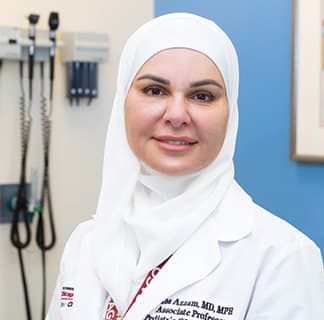Is it just picky eating? Or is it a feeding disorder?

Proper nutrition is one of the most important factors in helping a child grow up healthy and happy. Parents naturally worry about babies and toddlers who will eat only a few foods — or barely seem to eat anything at all.
A child’s growth from birth to age 5 can indicate if they are on track to develop normally, or if something is wrong. Timothy A. S. Sentongo, MD, is a pediatric gastroenterologist at the University of Chicago Medicine Comer Children’s Hospital and an expert in gastrointestinal problems affecting growth and nutrition in infants, children and adolescents. He explains what to look for and outlines treatment options.
How can you tell if something is wrong?
If you look at the child’s health history, you can see — based on the pattern of height and weight measurements — if there may be a problem with nutrition. For example, if a child is a normal height but very underweight, that could indicate something is wrong.
When should a specialist be consulted?
If feeding has become difficult for longer than two weeks, that’s a sign the issue could be becoming chronic, especially for a child under a year old. For children ages 3 to 5, anything going on for longer than a month requires consultation. In older children — 5 and above — anything that affects growth is an issue because children are supposed to grow, not stay the same or lose weight.
What’s the difference between a feeding disorder and a feeding problem?
A feeding disorder is an established issue that requires medical treatment and often occurs in children who have a medical diagnosis such as cerebral palsy. A child with a feeding problem may be trying to eat but having difficulty, such as gagging, or may refuse many or most foods. Timely treatment can help resolve the problem.
Feeding disorders are sometimes seen when children have the following conditions:
- Gastroesophageal reflux
- Gastrointestinal food allergies
- Anatomical anomalies of the gastrointestinal tract
- Cerebral palsy, developmental delay and other neurological or genetic conditions
- Sensory integration disorders
- Short bowel syndrome
- Prolonged hospital stay during early infancy
Feeding problems include:
- Gagging
- Food refusal
- Prolonged mealtimes
- Regurgitation
What happens if feeding issues are not caught early?
The biggest problem with late diagnosis is that growth and development are more severely impacted. Recognizing feeding problems early allows earlier involvement of a multidisciplinary team including speech, feeding, occupational, physical and developmental therapists and often a gastroenterologist. Younger children are more teachable, so they have greater potential for long-term success. If the problem is recognized later, a child can still be treated, but it can take more effort. For example, once a child starts school and is at the mercy of the breakfast and lunches provided, meeting their growth needs can become more challenging.
What does treatment typically look like?
Every child’s experience will be different. Sometimes treatment of the disorder will take time, and the child may need a feeding tube so that at least they continue to get adequate nutrition and grow. Some children catch up faster than others once treatment has started. We present parents with the big picture, establish a conservative timeline with the therapist, and if the child is responding and growing, we’re ok. But if growth becomes stagnant, we will have to intervene. It’s a multidisciplinary approach.
Who is a part of the multidisciplinary team?
Typically, a speech therapist, occupational therapist, ENT (ear, nose and throat) specialist and a gastroenterologist.

Pediatric Gastroenterology Team
At Comer Children's, your child benefits from the combined expertise of many of the nation's leading specialists in gastrointestinal diseases. Our gastroenterologists are nationally and internationally recognized for providing breakthrough care of complex digestive diseases.
Meet Our GI Team